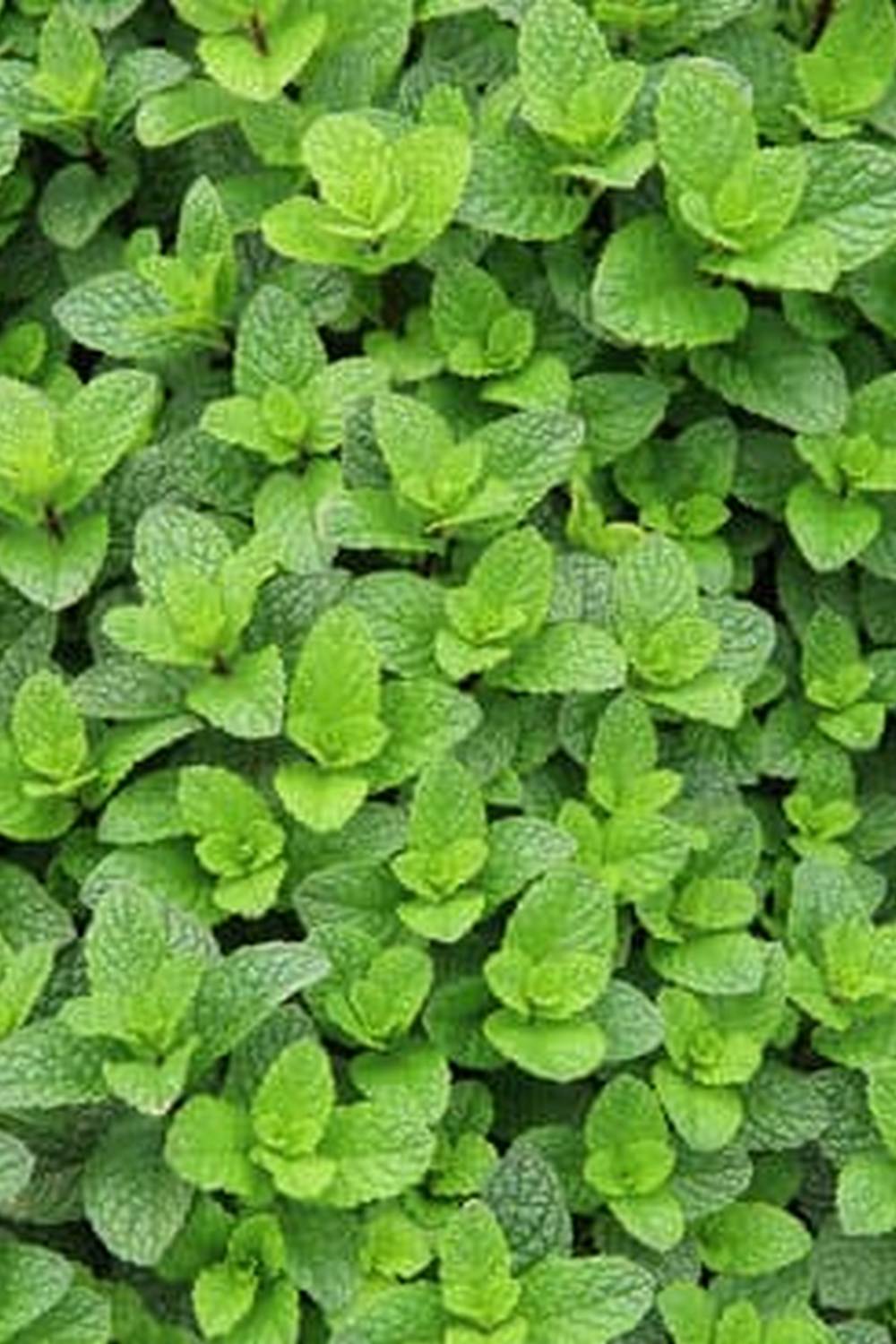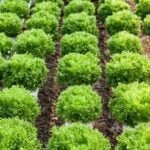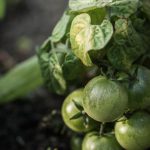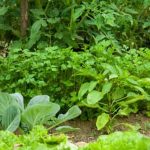Houston container vegetable gardening has become increasingly popular in urban areas due to limited space and is a great way for city dwellers to grow their own fresh produce. Container gardening allows individuals to cultivate vegetables, fruits, and herbs within the confines of their homes, even in cities like Houston where outdoor space may be limited.
The unique climate of Houston presents its own set of challenges and opportunities for container gardening. The region’s hot and humid weather can impact the success of a container garden, making it crucial for enthusiasts to understand the specific requirements needed to thrive in this environment.
In this article, we will explore the ins and outs of container gardening in Houston, from the benefits it offers to selecting the right containers, ideal vegetables for cultivation, soil and fertilizer tips, watering and sunlight requirements, pest and disease management, as well as harvesting and maintenance. Additionally, we will also share success stories and tips from avid Houston container gardening enthusiasts.
Whether you’re new to gardening or an experienced green thumb looking for new insights specific to the area, this guide will provide valuable information for growing a thriving container garden in Houston.
Benefits of Container Gardening in Houston
Container gardening in Houston offers a wide range of benefits to residents who are looking to grow their own vegetables. One of the main advantages of container gardening in Houston is that it allows individuals to have control over the growing conditions of their plants. This is especially important in Houston, where the climate can be extremely hot and humid, and traditional gardening methods may not always be feasible.
Moreover, container gardening in Houston also provides flexibility for those with limited outdoor space. Many people living in the city may not have access to a traditional garden plot, but with container gardening, they can still grow a variety of vegetables on balconies, patios, or even windowsills. This adaptability makes it an attractive option for urban dwellers looking to cultivate their own fresh produce.
Additionally, container gardening can also help to minimize pest and disease issues that are common in Houston. By keeping plants in containers, it becomes easier to identify and address any potential problems before they spread throughout a larger garden area. This can lead to healthier plants and higher yields for those practicing Houston container vegetable gardening.
| Vegetable | Successful Harvest |
|---|---|
| Tomatoes | Bountiful harvest of sweet cherry tomatoes |
| Peppers | Abundant crop of hot peppers suitable for salsa making |
| Herbs | Year-round supply of fresh basil, parsley, and cilantro |
With the many benefits associated with container gardening in Houston-from greater control over growing conditions to increased flexibility for urban gardeners-it’s no wonder that more and more residents are choosing this method as their preferred way to grow their own vegetables despite living in a bustling city.
Selecting the Right Containers for Houston Vegetable Gardening
When it comes to container gardening in Houston, selecting the right containers is crucial for the success of your vegetable garden. The climate in Houston can be quite challenging, with hot and humid summers, so choosing the appropriate containers is essential for the health and growth of your plants.
Material
When selecting containers for vegetable gardening in Houston, consider the material of the pots. Terracotta pots are popular due to their classic look, but they tend to dry out quickly in the Houston heat. Plastic and resin containers are a better choice as they retain moisture better and are lightweight, making them easier to move around.
Size
The size of your container is also important. Different vegetables have different root depths, so select pots that are large enough to accommodate the mature size of the plant. For example, deep containers like 5-gallon buckets are suitable for growing tomatoes or peppers, while shallow containers are ideal for lettuce or herbs.
Drainage
Good drainage is essential for successful container gardening in Houston. Make sure your containers have adequate drainage holes to prevent waterlogging, which can lead to root rot. Elevating your pots slightly by placing them on pot feet can also help improve drainage.
By carefully selecting the right containers for your Houston container vegetable gardening project, you can create a thriving garden that produces an abundance of fresh vegetables despite the challenges of the local climate.
Ideal Vegetables for Container Gardening in Houston
When it comes to container gardening in Houston, selecting the right vegetables is crucial to ensure a successful harvest. While the hot and humid climate of Houston can present some challenges, there are plenty of vegetables that thrive in containers in this region. Here are some ideal vegetable options for your Houston container garden:
Tomatoes
Tomatoes are a popular choice for container gardening in Houston due to their versatility and ability to thrive in warm weather. Compact or dwarf varieties such as cherry tomatoes are well-suited for containers and can produce an abundant harvest throughout the growing season.
Peppers
Peppers, including bell peppers, jalapenos, and chili peppers, are excellent choices for container gardening in Houston. These heat-loving plants will thrive in the hot climate and can easily be grown in large pots or other suitable containers.
Eggplant
Eggplants are another great option for Houston container vegetable gardening. They do well in warm temperatures and can be successfully grown in containers with proper care and maintenance.
Herbs
In addition to traditional vegetables, herbs such as basil, thyme, mint, and cilantro also make excellent candidates for container gardening in Houston. These compact plants can be grown on patios or balconies and provide a fresh supply of aromatic herbs for cooking.
By choosing the right vegetables for your container garden in Houston, you can enjoy a bountiful harvest while making the most of limited space. With proper care and attention to each plant’s specific requirements, you can create a thriving vegetable garden right at home.
Soil and Fertilizer Tips for Houston Container Gardening
When it comes to successful Houston container vegetable gardening, it’s crucial to start with the right soil and provide proper fertilization. Houston’s hot and humid climate can present some challenges, but with the right knowledge and preparation, you can still achieve a bountiful container garden.
First and foremost, it’s important to choose a high-quality potting mix specifically designed for containers. These mixes are specially formulated to provide excellent drainage and aeration, which is essential for healthy root growth in container plants. Avoid using garden soil, as it tends to become compacted in containers and may not drain well.
To further enhance the fertility of your potting mix, consider incorporating organic matter such as compost or aged manure. This will not only provide essential nutrients to your plants but also improve the overall structure of the soil. Additionally, you can use slow-release organic fertilizers specifically formulated for vegetables in containers.
For those using peat-based mixes in their containers, it’s worth noting that these can become acidic over time. To counteract this, consider periodically adding lime to help balance the pH levels. Remember to follow package instructions when applying any type of fertilizer or amendment to avoid overfeeding or damaging your plants.
| Soil & Fertilizer Tip | Recommendation |
|---|---|
| Use high-quality potting mix | Choose a mix specifically designed for containers |
| Incorporate organic matter | Add compost or aged manure for added nutrients |
| Consider slow-release organic fertilizers | Use fertilizers specifically formulated for vegetables in containers |
Watering and Sunlight Requirements for Houston Vegetable Container Gardening
Container vegetable gardening in Houston requires careful attention to watering and sunlight requirements in order to ensure successful growth and bountiful harvests. The hot and humid climate of Houston can pose challenges for gardeners, but with the right strategies, you can maximize the potential of your container garden.
In Houston, it’s essential to be mindful of the intense heat and sun exposure that plants in containers may experience. When selecting a location for your containers, aim for a spot that receives at least 6-8 hours of direct sunlight each day. However, during the peak of summer, some vegetable plants may benefit from partial shade during the hottest part of the day to prevent wilting and sunburn.
Proper watering is crucial for container gardening success in Houston. The heat and humidity can quickly dry out soil in containers, so regular monitoring of soil moisture is necessary. Depending on the size of your containers and the specific needs of your vegetables, you may need to water daily or even twice a day during periods of extreme heat.
To maintain consistent moisture levels, consider using self-watering containers or installing drip irrigation systems for larger container gardens. Additionally, mulching the top layer of soil can help retain moisture and reduce evaporation, especially during the sweltering Houston summers. By providing adequate sunlight and carefully managing water needs, you can create an optimal growing environment for your Houston container vegetable garden.
Overall controlling sunlight requirements including partial shade and maintaining consistent moisture level will significantly affect your houston container vegetable gardening success.
Pest and Disease Management for Houston Container Gardening
Pest and disease management is an essential aspect of successful Houston container vegetable gardening. With the warm and humid climate of Houston, it is important for gardeners to be vigilant in preventing and addressing any issues that may arise. Here are some tips for managing pests and diseases in your Houston container garden:
1. Identify common pests and diseases: Familiarize yourself with the common pests and diseases that can affect vegetable plants in Houston. Some common pests include aphids, caterpillars, and spider mites, while common diseases include powdery mildew and leaf spot.
2. Natural pest control methods: Utilize natural pest control methods such as introducing beneficial insects like ladybugs or lacewings to control pest populations. You can also use insecticidal soaps or neem oil to combat pesky bugs without harming beneficial insects.
3. Disease prevention: To prevent diseases, ensure proper air circulation around your plants by spacing them appropriately in your containers. Additionally, avoid overhead watering to minimize the spread of fungal diseases, and promptly remove any diseased plant material to prevent further spread.
4. Regular inspection: Regularly inspect your container plants for any signs of pests or disease. Early detection is key in preventing widespread infestations or outbreaks, so keep an eye out for yellowing leaves, holes in foliage, or any other abnormal changes in your plants.
By being proactive in managing pests and diseases, you can ensure a healthy and thriving container garden in Houston. Keep these tips in mind as you tend to your vegetable plants to enjoy a bountiful harvest throughout the growing season.
Harvesting and Maintenance of Vegetables in Houston Container Gardens
Once your vegetables have reached maturity, it’s time to start harvesting. The best part about container gardening in Houston is that you can enjoy the fruits of your labor without the need for a large outdoor space.
When harvesting your vegetables, it’s important to do so at the right time to ensure they are at their peak flavor and quality. For example, tomatoes should be picked when they are fully colored and slightly soft to the touch, while leafy greens can be harvested when they are young and tender.
In addition to harvesting, maintenance is also crucial for the success of your Houston container vegetable garden. Regular watering, pruning, and fertilizing will help keep your plants healthy and productive. It’s important to closely monitor your plants for any signs of pests or diseases, as these can quickly spread in a confined space such as a container. By staying proactive with maintenance, you can ensure that your vegetables continue to thrive throughout the growing season.
To further enhance the maintenance of your Houston container vegetable garden, consider regularly checking the soil moisture levels and adjusting based on weather conditions. This can be especially important during hot summer months when containers tend to dry out more quickly.
Moreover, keeping an eye on sunlight exposure and providing adequate shade when needed will help prevent sunscald on fruits and keep your plants from becoming stressed. These maintenance practices will ultimately contribute to a bountiful harvest from your Houston container vegetable garden.
Overall, successful harvesting and maintenance of vegetables in Houston container gardens require vigilance and attention to detail. By following these practices, you’ll be able to enjoy a continuous supply of fresh produce throughout the growing season – all within the confines of limited outdoor space through container gardening.
Success Stories and Tips From Houston Container Gardening Enthusiasts
In conclusion, container vegetable gardening in Houston offers a wealth of benefits and opportunities for enthusiasts to grow their own fresh produce, even in limited spaces. The city’s unique climate and environmental conditions make it ideal for cultivating a wide variety of vegetables in containers, allowing residents to enjoy the satisfaction of harvesting their own homegrown crops. With the right containers, soil, fertilizers, and proper care techniques, anyone can experience success with this rewarding endeavor.
One of the key advantages of container gardening in Houston is the ability to control the soil quality and drainage conditions, which are crucial for the healthy growth of vegetables. This method also allows for flexibility in terms of placement and mobility, making it possible to optimize sunlight exposure and water distribution throughout the growing season.
Additionally, container gardening provides an opportunity for individuals to experiment with different varieties of vegetables and discover which ones thrive best in Houston’s specific climate.
Moreover, as evidenced by the success stories and tips shared by local gardening enthusiasts, container vegetable gardening can be a fulfilling and enjoyable hobby that brings communities together. Connecting with fellow gardeners who share their experiences and insights can provide valuable knowledge and inspiration for those embarking on their own Houston container gardening journey.
Ultimately, as more people embrace this sustainable practice, they contribute to promoting a greener environment while reaping the fruits – or rather vegetables – of their labor. Whether on a small balcony or a spacious patio, Houston container vegetable gardening offers endless possibilities for cultivating fresh produce right at home.
Frequently Asked Questions
What Vegetables Grow Well in Houston Texas?
Houston, Texas has a warm and humid climate, making it suitable for growing vegetables like tomatoes, peppers, okra, sweet potatoes, and cucumbers. These vegetables thrive in the hot Texas weather and can be grown successfully in Houston’s climate.
What Is the Best Vegetable to Grow in a Container?
The best vegetable to grow in a container is the tomato. Tomatoes do well in containers as long as they have proper support and drainage. They are also low maintenance and don’t require a lot of space to grow, making them perfect for container gardening.
What Zone Is Houston Texas in for Gardening?
Houston, Texas is located in USDA hardiness zone 9a for gardening. This means that gardeners in Houston should select plants that are suitable for this zone in order to have a successful garden. It’s important to choose plants that can tolerate the heat and humidity of the area.

If you’re looking to get into vegetable gardening, or are just looking for some tips on how to make your current garden better, then you’ve come to the right place! My name is Ethel and I have been gardening for years. In this blog, I’m going to share with you some of my best tips on how to create a successful vegetable garden.





